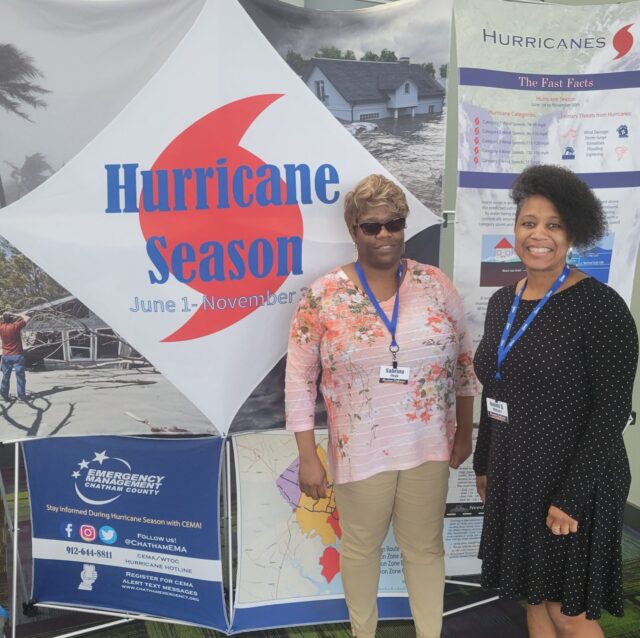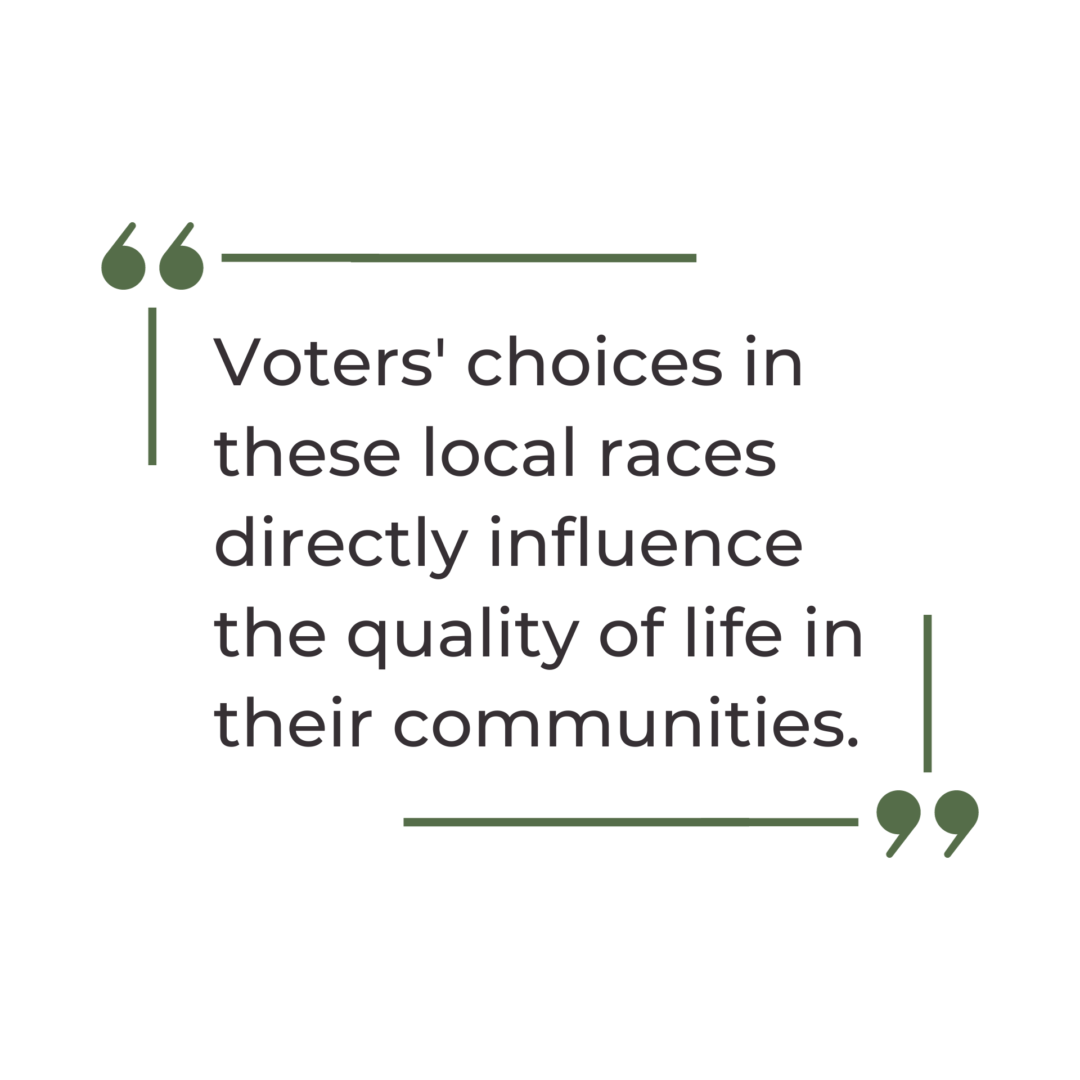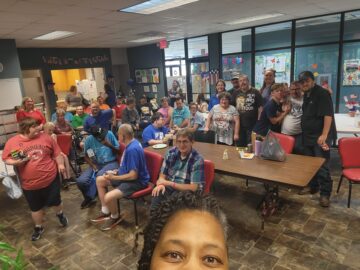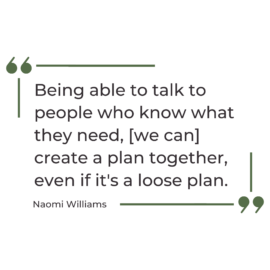Emergency Preparedness Grant Supports Listening Sessions Across Georgia
 Naomi Williams (right), leader of Exceptional Living 101Life can change in an instant. From a loved one falling ill, to a natural disaster in your hometown, to a pandemic shutting down the world, emergencies can strike any time, any place, and to anyone. And, when it comes to people with disabilities, medical, situational and mental health emergencies can be even more critical and difficult to navigate. For example, a person who uses a wheelchair is more likely to experience a crisis if a building’s elevator breaks down, such as Naomi Williams’ son, Noah, who uses a wheelchair. He also has significant medical needs and requires full-time support, so a broken elevator can cause a dangerous situation for him and his caregivers.
Naomi Williams (right), leader of Exceptional Living 101Life can change in an instant. From a loved one falling ill, to a natural disaster in your hometown, to a pandemic shutting down the world, emergencies can strike any time, any place, and to anyone. And, when it comes to people with disabilities, medical, situational and mental health emergencies can be even more critical and difficult to navigate. For example, a person who uses a wheelchair is more likely to experience a crisis if a building’s elevator breaks down, such as Naomi Williams’ son, Noah, who uses a wheelchair. He also has significant medical needs and requires full-time support, so a broken elevator can cause a dangerous situation for him and his caregivers.
Williams has a long personal and professional history in the developmental disabilities field and now runs her own consulting organization, Exceptional Living 101, to help people in the disability community navigate life-altering events and ensure the life they want.
She said,“An elevator being out is not an emergency for everyone, but for someone who is independent and able to navigate in a power wheelchair on their own, if an elevator goes out and they're stuck on the second or third floor, what do you do?”
Having experienced emergency situations such as this, Williams applied for, and was awarded, a public health workforce grant from the Georgia Council for Developmental Disabilities (GCDD). The purpose of the grant project is to help enhance emergency preparedness for people with disabilities and their families. She aims to build a better understanding of what people in the disability community go through, noting that emergencies may vary between people with different types of disabilities, or even people from different geographical regions.
“With this grant and with the listening sessions that we're doing, we are wanting to be able to identify what is considered an emergency to you, so [we are] working our way across the state, because what somebody on the coast, in Savannah or Brunswick, what they prepare for is not all the same that someone in North Georgia prepares for or vice versa,” Williams said.
Williams also felt the need to pursue emergency preparedness work as a result of the pandemic. She stated, “During the COVID-19 pandemic, the disability community was left out. The disability community was like an afterthought with a lot of things.”
She cited transportation as one of the most significant obstacles. Those who relied on wheelchair accessible paratransit were, and continue to be, affected by the nationwide staffing shortage. Without enough drivers and support staff, people with disabilities have gotten stuck or stranded for hours.
As a first step, Williams has co-hosted several in-person and virtual listening sessions throughout the state of Georgia. The listening sessions provide a person-centered approach to learning about and addressing emergency preparedness.
“We can't create something for someone based on what we think they need. Happens all the time, but that doesn't always work out well. And so being able to talk to people who know what they need, [we can] create a plan together, even if it's a loose plan,” Williams explained.
Through the listening sessions, she hopes to be able to provide answers to difficult questions like:
“How do you protect yourself if the world shuts down again?”
“What do I need in order to be safe and provide myself and my family the things that we need?”
“How can we be proactive?”
And, “If you have [emergency] disruptions, what do you need to have in place so it's not catastrophic?”
The next step in the plan will be working with current partners and, perhaps, developing relationships with new ones, to develop effective ways to connect, share and disseminate the emergency preparedness tools and information. Williams envisions tangible resources including electronic and printable documents, as well as resources to provide plain language in news, media and television.
When news is being broadcast, Williams imagines a resource that utilizes language that “anybody can understand, not [on a] Dr. Fauci or micro virologist level. Viewers or listeners would be able to break it down and say, ‘this is how you can prepare. This is what this means.’”
For more information on how the disability community in Georgia can learn more about emergency preparedness, contact Naomi Williams at


